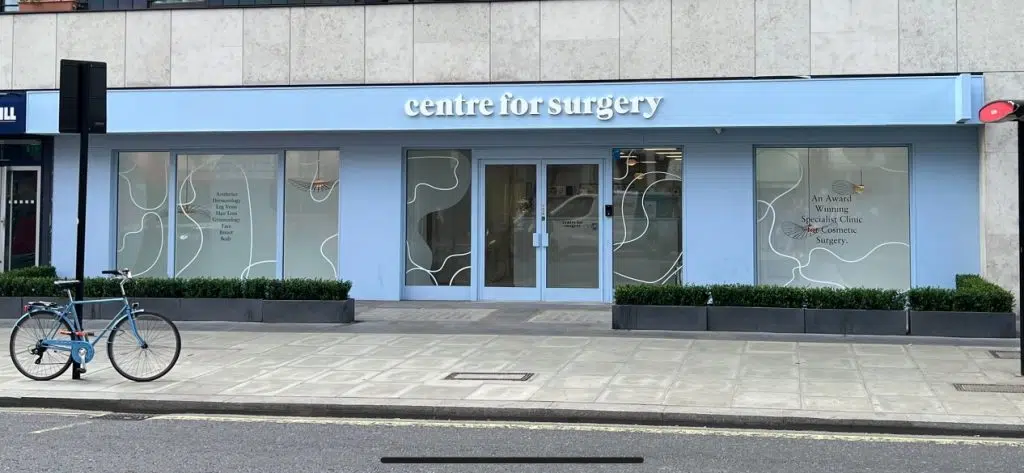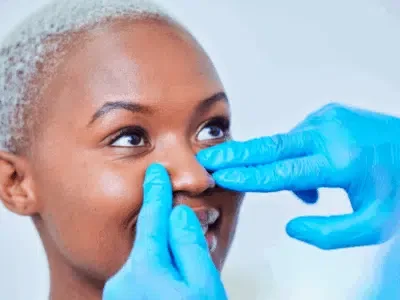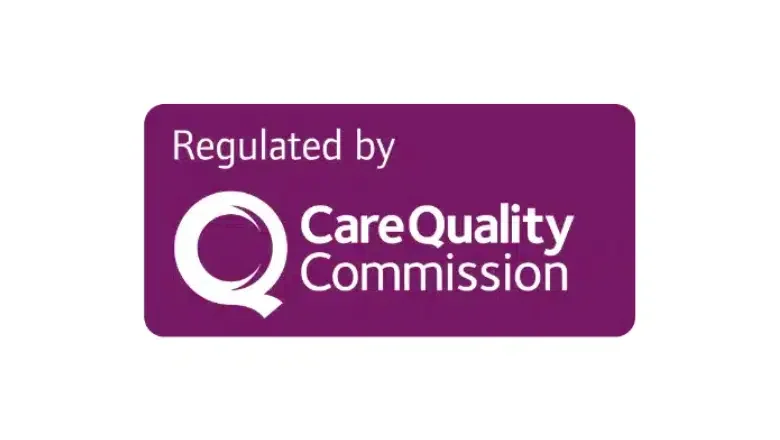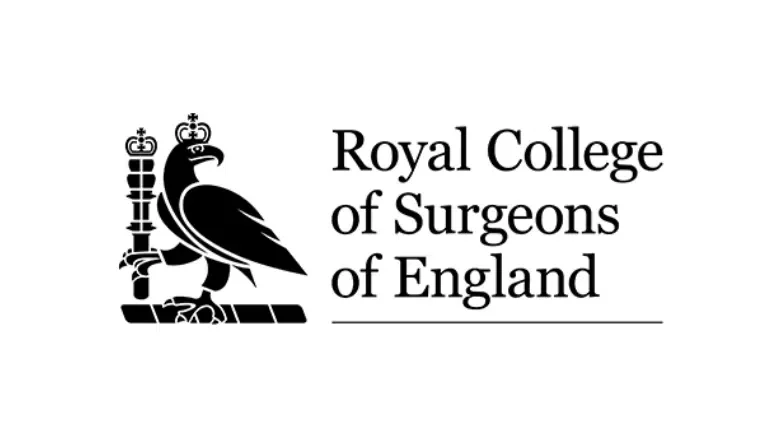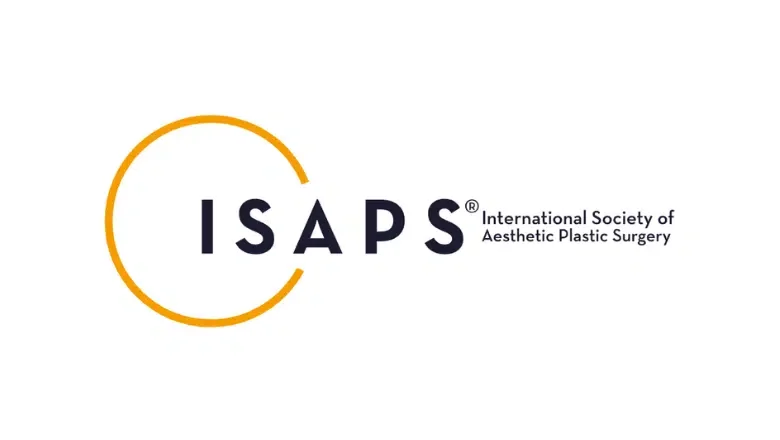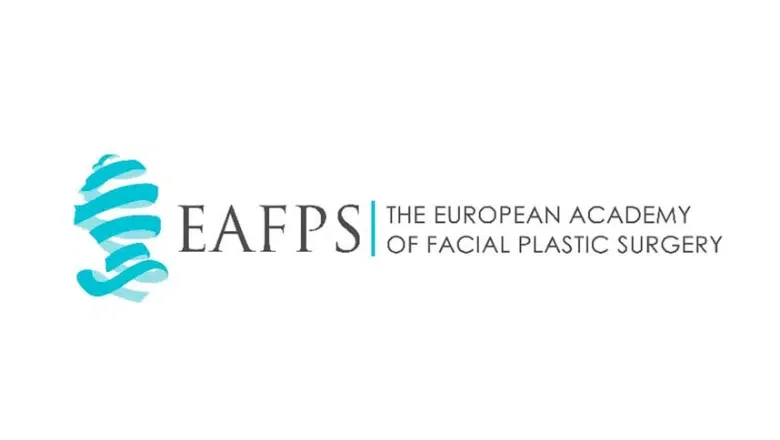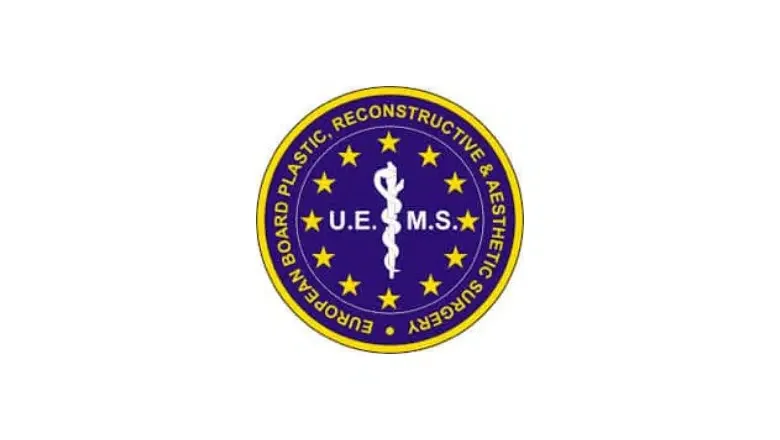Despite being one of the most popular procedures at Centre for Surgery in London, many patients may be put off the idea of having a rhinoplasty or nose reshaping procedure due to the potential risks involved. When performed by an experienced rhinoplasty surgeon in a reputable UK cosmetic surgery clinic, the risks and potential complications of rhinoplasty surgery are considered minimal.
RELATED: Is rhinoplasty worth it?
What are the general risks of nose surgery?
Anaesthetic risks
Rhinoplasty surgery is performed under general anaesthesia at Centre for Surgery. We do not offer twilight anaesthesia as we believe the risks associated with this technique outweigh its potential benefits. The type of general anaesthetic we use is known as total intravenous anaesthesia, or TIVA for short. During rhinoplasty surgery, you will have a dedicated consultant anaesthetist to look after you throughout your procedure.
Infection
Infection is a rare complication of rhinoplasty surgery, and your surgeon will prescribe a prophylactic course of antibiotics for you to take for the first week after your procedure.
Bleeding or haematoma formation
When a septorhinoplasty is performed, there is a small risk of a septal haematoma forming. This can be easily treated in the clinic, but must be recognised early to ensure prompt and effective treatment.
Delayed wound healing
This is a common complication in patients who continue to smoke both before and after the procedure. This is why we always recommend that all smokers stop smoking at least four weeks before and after surgery to reduce the risk of wound healing complications.
Excessive scarring
This complication can be minimised by the accurate placement of the incision for open rhinoplasty and with proper post-operative scar management. It is essential to remember that scars may take up to 12 months to fully mature.
Numbness of the nose tip
Numbness or tingling affecting the nasal tip is a temporary side effect which should gradually improve between 3 and 6 months after surgery. It is most commonly associated with rhinoplasty swelling, which may take up to 12 months to subside after surgery.
Persistent pain
This is a rare complication and can be effectively managed with adequate postoperative pain relief and reducing activities which may increase nose swelling, such as carrying out strenuous exercise too soon after surgery.
It is essential to note that all types of surgical procedures entail certain risks, and the healing and recovery process will vary among patients, depending on the extent of surgical correction and other patient-specific factors.
RELATED: Key Facts And Myths About Rhinoplasty Surgery
What are the specific risks of rhinoplasty surgery?
Temporary or permanent alteration to nasal functions, including the perception of smell or taste – there is a small recognised risk of altered perception of smell, and it is more common when sinus surgery for blocked sinuses is combined with rhinoplasty surgery.
Nasal asymmetry – the nose shape may develop localised irregularities affecting the bridge of the nose when the nasal bones have to be fractured to narrow the upper part of the nose.
Septal perforation is a recognised complication of septoplasty surgery. As long as it is recognised early, treatment is effective in correcting this condition.
Crooked nasal dorsum – this can occur when the surgeon does not adequately reduce the nose evenly on both sides after fracturing it to reduce the width of the nose. Residual nasal bumps may remain after surgery.
Skin discolouration – patients with naturally thin skin may develop skin discolouration after surgery. This can be minimised by using a gentle surgical technique.
Breathing difficulties – rhinoplasty swelling can cause significant swelling of the nasal passages after surgery but will resolve after two weeks. Persistent breathing difficulties may be due to a deviated septum that was not corrected during rhinoplasty surgery.
When is revision rhinoplasty required?
In a small number of cases, patients may request a revision rhinoplasty as they may not be happy with the shape of their new nose or may feel the nose is out of balance with the rest of their facial features. Less common requests for revision rhinoplasty may be due to patients with unrealistic expectations of what a nose job can achieve. Revision rhinoplasty surgery is reserved for those with persistent aesthetic or functional concerns affecting the nose.
How to minimise the risks of rhinoplasty
Most risks of nose surgery can be minimised by ensuring you are a suitable candidate for rhinoplasty surgery. You should clearly understand what the procedure involves, and your expectations for Surgery should be realistic. This may require several preoperative consultations to ensure you completely understand the procedure and its potential risks. You should follow your surgeon’s preoperative and postoperative instructions in full. Failing to follow these may increase the risk of complications occurring after rhinoplasty surgery.
Although your surgeon may sometimes use 3-D imaging to map the structure of your nose, this should be seen as a rough approximation of the final result. You should not attach excessive importance to how the postoperative images look, as healing after surgery cannot be controlled. If you smoke, you should avoid smoking for a minimum of four weeks before and after surgery, as this could lead to delayed wound healing and poor cosmetic results. If you have underlying medical issues or localised skin problems affecting the nose, you should inform your surgeon at your consultation. Make sure to take plenty of time to rest and recover and avoid commencing vigorous activities, including going to the gym too soon after surgery.
Rhinoplasty surgery at Centre for Surgery in London
Centre for Surgery is the leading cosmetic surgery clinic in London. Our expert plastic surgeons have extensive experience in performing all types of rhinoplasty surgery, including ultrasonic rhinoplasty and revision rhinoplasty. We are one of the few plastic surgery clinics in the UK to specialise in preservation rhinoplasty, a highly specialised nose reshaping technique that does not involve breaking the nasal bones. Speak to one of our friendly and knowledgeable patient coordinators today at 0207 993 4849 to learn more about preservation rhinoplasty and if you are a suitable candidate for this particular technique.

